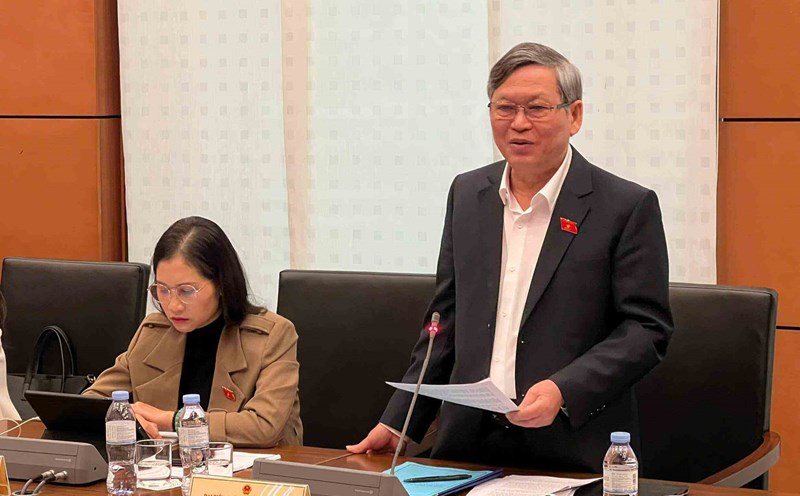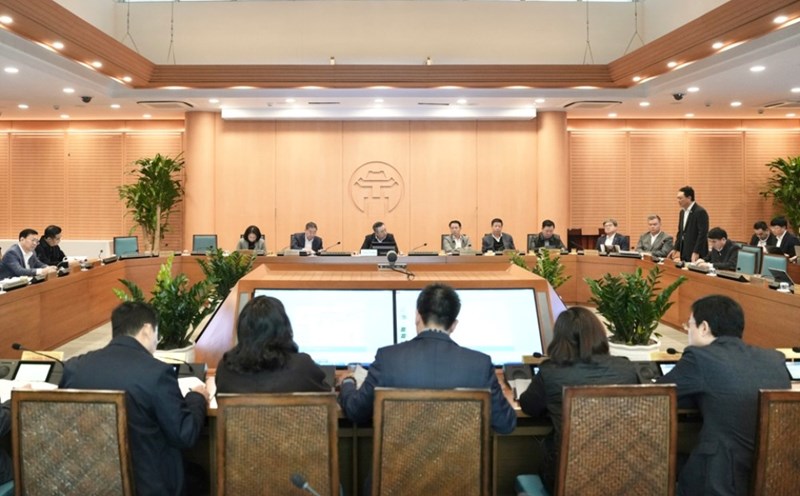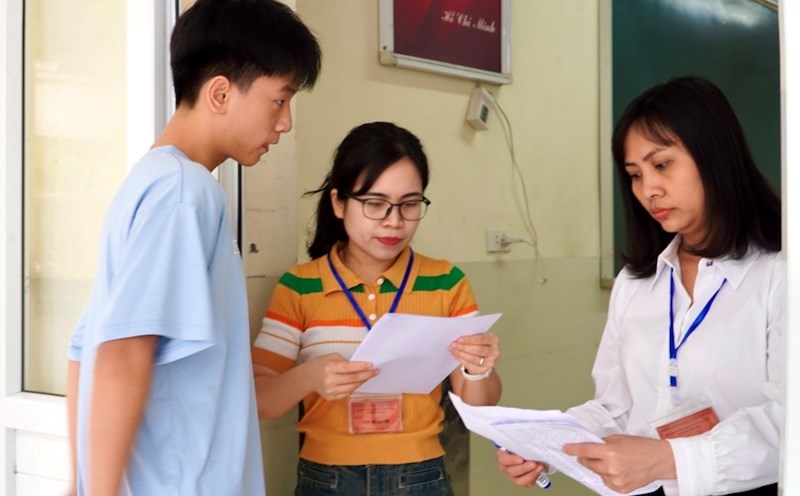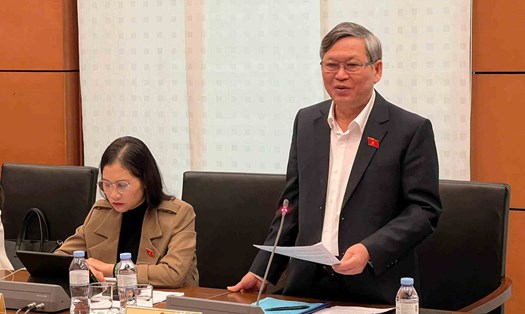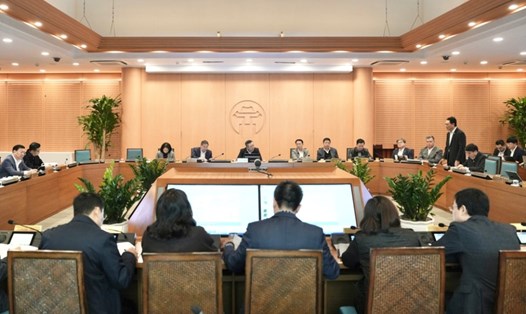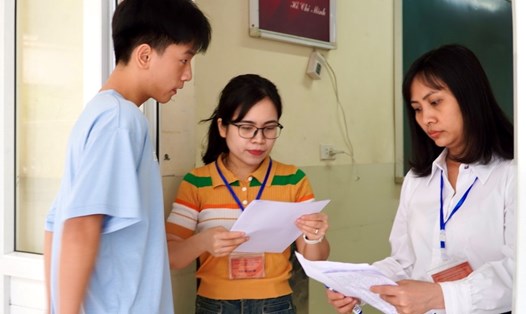On the morning of February 13, the National Assembly discussed in groups the draft Law on Government Organization, the Law on Organization of Local Government (amended); and the draft Resolution of the National Assembly regulating the handling of a number of issues related to the reorganization of the state apparatus.
Increase authority so that "locals decide, local people do, local people are responsible"
Commenting on the draft Law on Organization of Local Government, Mr. Phan Van Mai - Chairman of the Ho Chi Minh City People's Committee - suggested continuing to conduct comprehensive research on the government model.
According to Mr. Mai, the study must answer the big question: How many levels of government are there? What agencies are included in each level of government? From there, we can answer whether there are 3 or 4 levels of government, whether the district level is abolished or not? At each level, are there People's Councils and People's Committees or not? Currently, this regulation is not clear.
In addition, clarify the relationship between the People's Committee and the Administrative Committee. This is to ensure consistency and suitability to reality. This is also the basis for proposing amendments to the Constitution and related laws.
Regarding Ho Chi Minh City, Mr. Mai said that currently, Hanoi and Da Nang are piloting the urban government resolution. Meanwhile, Ho Chi Minh City has entered the 5th year of implementing Resolution 131 on urban government organization.
Maintaining the application of the above Laws and Resolutions helps Ho Chi Minh City and some localities have time to thoroughly summarize and research to propose a suitable legal framework; maintaining reasonable points in the old regulations.
Chairman of the Ho Chi Minh City People's Committee Phan Van Mai also said that to implement the viewpoint of "locality decides, locality acts, locality takes responsibility", it is necessary to increase the authority and responsibility of the People's Council, People's Committee, and Chairman of the People's Committee.
At the same time, for Ho Chi Minh City and localities with balanced budget revenue, exceeding the target of contributing to the state budget, there needs to be a stronger mechanism to create motivation.
According to Mr. Mai, the provisions in the draft Law on Organization of Local Government (amended) allow the People's Council to decide on policies and measures to develop financial investment, science and technology, culture and society. However, in reality, it is only "legalizing the assigned tasks".
“For example, Ho Chi Minh City National University is a central unit located in the city. The capacity of science and technology lies here. Ho Chi Minh City wants to invest 10 research centers for the National University, each center costs 100 billion VND; support training for each professor with 100,000 USD/year. Can the People's Council decide? The law is very well written, but the People's Council cannot decide.
In 2030, if Ho Chi Minh City National University is invested from 15,000 - 20,000 billion VND, it will be able to complete a university urban area like Thu Thiem. But if it is left like this, will the central budget invest or not? If Ho Chi Minh City wants it, can it be done, can the People's Council decide, can the City People's Committee propose?" - Mr. Mai cited practical evidence and affirmed that the issues in the law still need to be amended to be implemented and done effectively to contribute to double-digit economic growth, promoting internal strength to rise up.
Need strict monitoring mechanism
Mr. Tran Van Khai - Standing Member of the National Assembly's Committee on Science, Technology and Environment - commented that the Draft Law on Organization of Local Government (amended) 2025 has many positive points but still has some limitations that need to be overcome.
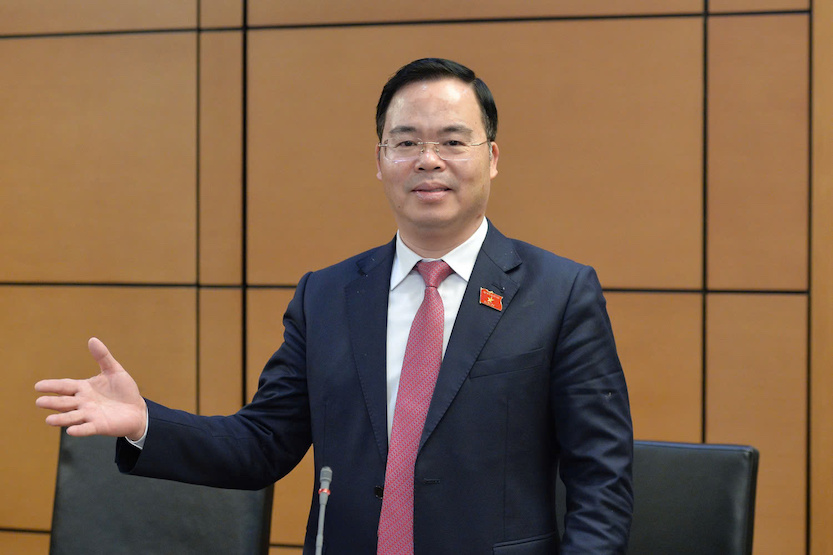
The five shortcomings Mr. Khai mentioned include: There are no specific criteria for merging and separating administrative units; increased decentralization but lack of strict monitoring mechanism; lack of separate support policies for urban authorities; commune-level authorities may be overloaded.
"Strong decentralization can lead to fragmentation and overlapping in management between the central and local governments. A clear monitoring mechanism is needed to avoid the situation where localities make their own decisions but do not ensure consistency with national policies," said Mr. Khai.
From the above shortcomings, delegate Tran Van Khai proposed to amend the provisions including: Adding clear criteria for local mergers and separations (Articles 9, 11); Improving the mechanism for monitoring the implementation of decentralization, adding sanctions to handle violations (Articles 12, 13, 14); Developing separate policies for urban governments (Articles 2, 16, 17); Reducing workload for commune level, supporting human resources and finance (Articles 23, 24).
"Adjusting the above points will help streamline the administrative apparatus, improve the efficiency of local government operations and ensure transparency and accountability," said Mr. Khai.

